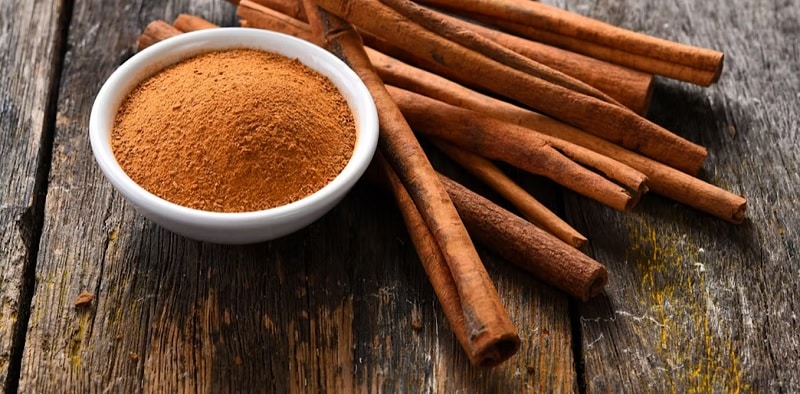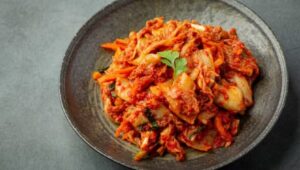
Culinary spices not only enhance the flavor of dishes but also elevate their nutritional profiles. The saying “variety is the spice of life” takes on a literal meaning when it comes to transforming food’s flavor, texture, aroma, and, most importantly, taste. Beyond their culinary use, spices have been studied for years for their health and medicinal benefits. Using spices to flavor foods can also lead to reduced salt and fat in cooking, offering advantages for various health conditions, especially those related to high cholesterol.
While no single food or spice can cure high cholesterol, certain spices may have a notable impact. In this article, we explore dietitians’ recommendations for managing high cholesterol, focusing on one specific spice: Cinnamon.
Understanding High Cholesterol
High cholesterol is a precursor to heart disease, with cholesterol playing a crucial role in hormone production, vitamin D synthesis, and digestion support. Elevated cholesterol levels increase the risk of plaque formation, leading to atherosclerosis and, subsequently, a higher risk of heart attack or stroke. Lifestyle factors such as diet and exercise can significantly impact cholesterol levels.
Renee Korczak, Ph.D., RDN, CSSD, LD, a practicing dietitian nutritionist, emphasizes the potential of spices to support heart health. According to a 2023 review in Nutrients, spices contain bioactive plant-based compounds that may help reduce cholesterol levels, improve blood flow, and support blood sugar regulation.
The #1 Spice for High Cholesterol: Cinnamon
Cinnamon takes the spotlight as the number one spice recommended for managing high cholesterol. Known for its potential to reduce blood sugar in individuals with diabetes, cinnamon also boasts anti-inflammatory properties. Incorporating cinnamon into a heart-healthy diet can serve as a substitute for fat, sugar, and salt.
Jordan Hill, RDN, CSSC, a registered dietitian at Top Nutrition Coaching, suggests incorporating spices like cinnamon, cayenne pepper, garlic, ginger, and turmeric for those with high cholesterol. These spices are not only flavorful but are also associated with various health benefits.
Cinnamon and Cholesterol: The Research
Research on cinnamon’s impact on cholesterol has primarily focused on supplements. Studies using cinnamon supplements in individuals with diabetes and metabolic syndrome have shown potential benefits, including decreased levels of total cholesterol, triglycerides, low-density lipoprotein (LDL), and improved blood pressure.
A 2017 clinical trial published in Lipids in Health and Disease investigated the effects of oral cinnamon supplementation (3 grams daily) versus a control group over 16 weeks. The supplement group experienced a significant decrease in various health parameters compared to the placebo.
In a 2022 meta-analysis and systematic review published in Frontiers in Physiology, participants with type 2 diabetes who received cinnamon powder or extract showed reduced levels of LDL cholesterol and triglycerides compared to the placebo group.
Should You Take Cinnamon Supplements?
Before considering cinnamon supplements, it’s crucial to consult with a healthcare provider, especially if taking medication for high cholesterol or glucose management. While promising, research on spices like cinnamon can be inconsistent, and lifestyle modifications remain crucial. Cinnamon supplements should complement a balanced approach, including a fiber-rich diet, regular physical activity, sufficient sleep, and weight management.
Culinary Use of Cinnamon
Culinary use of cinnamon is not only enjoyable but also beneficial. Using cinnamon powder in daily cooking, such as baking, adding to coffee grounds before brewing, incorporating into pancake batter, or sprinkling in yogurt, offers a flavorful and health-conscious approach. When using cinnamon regularly, opting for Ceylon cinnamon, which contains less coumarin, is advisable.
Other Strategies for Lowering Cholesterol
While cinnamon shows promise, an overall high-quality diet plays a crucial role in lowering cholesterol. A diverse plant-based diet rich in whole grains, legumes, nuts, seeds, fruits, and vegetables contributes to increased fiber intake, a key factor in cholesterol management. Choosing proteins low in saturated fat, moderating red meat and cheese intake, and maintaining a healthy weight through regular exercise are additional strategies.
Cinnamon, when incorporated into a well-rounded lifestyle, can be a complementary tool in managing cholesterol levels. However, relying solely on cinnamon without overall dietary changes won’t significantly impact cholesterol. It’s essential to embrace a holistic approach, making spices like cinnamon an enjoyable part of a heart-healthy journey.
For personalized advice on cinnamon supplementation and its benefits, consulting with a registered dietitian or healthcare professional is recommended. Individual factors, including medications and dietary patterns, should be carefully considered for optimal health management.

